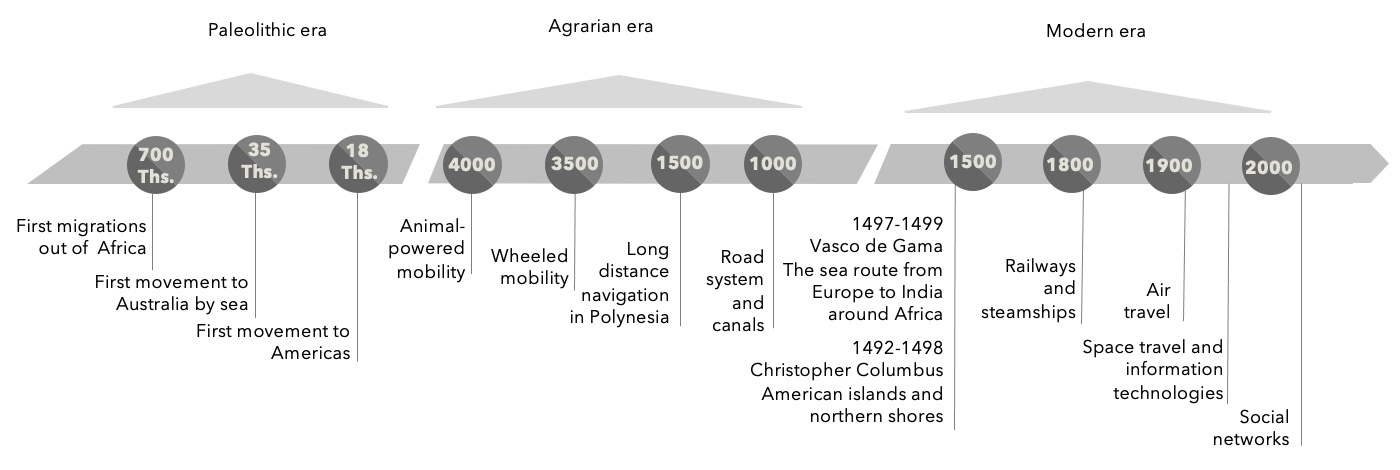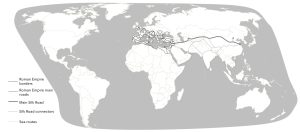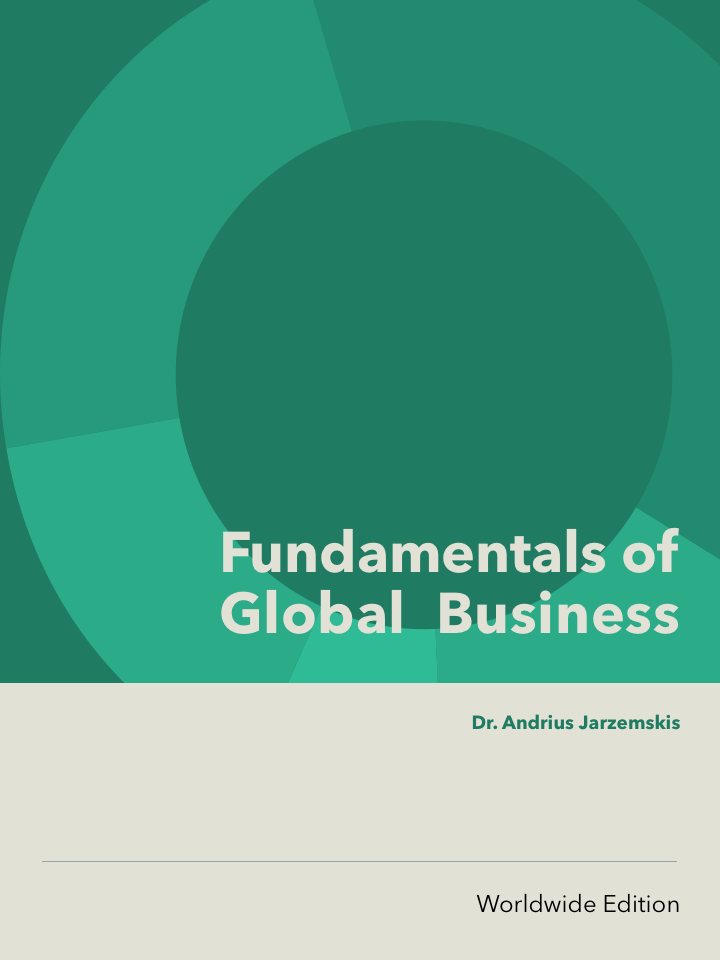Chapter represents the origins and genesis of globalisation in different eras. The period during which globalisation emerged has been interpreted differently, as it could be argued that human history is itself a process leading to globalisation. However, the three main periods into which we can divide the development of globalisation are the Ancient and Medieval periods, the modern period, and the post–modern period that followed the Second World War.
Ex. 2‑1 Human movement in different eras

Keywords: human movement, travel
Ex. 2‑2 Silk, Arab trade and the Roman Empire routes

Keywords: Roman empire, Silk road
Ex. 2‑3 Stages of globalisation

Keywords: stages of globalisation
The desire to know and use the goods of other countries has always been the driving force behind globalisation, but technical and socio-economic constraints and barriers have prevented its full realisation. The history of Egypt and Ancient Greece shows the desire and potential of these countries to expand their influence, followed by the creation of empires, with the Roman Empire symbolising the first attempt by different nations to create a common political and economic system. Imperialist and mercantilist systems were based on the search for new lands and territories, conquest, plunder, and finally, trade.
Share or comment this information on your social media:
Check Ebook

The paperback book is being prepared for publication. The electronic book will be available for purchase from September 2024.
A.1 Theories of international economics
- The origins and genesis of globalisation in different eras
- Evolutions and shift of world economic powers and trade
- Evolution of money as unit of exchange
- The first international companies
- Mobility and communication technologies as key enablers of globalisation
- Industrial revolutions
- Differences of international business in Fordism and post-Fordism
- Questions for Chapter Review
- Chapter Bibliography
About author
The author has been teaching at several universities since 2005. 40+ scientific publications, 10+ international research projects. More about author.